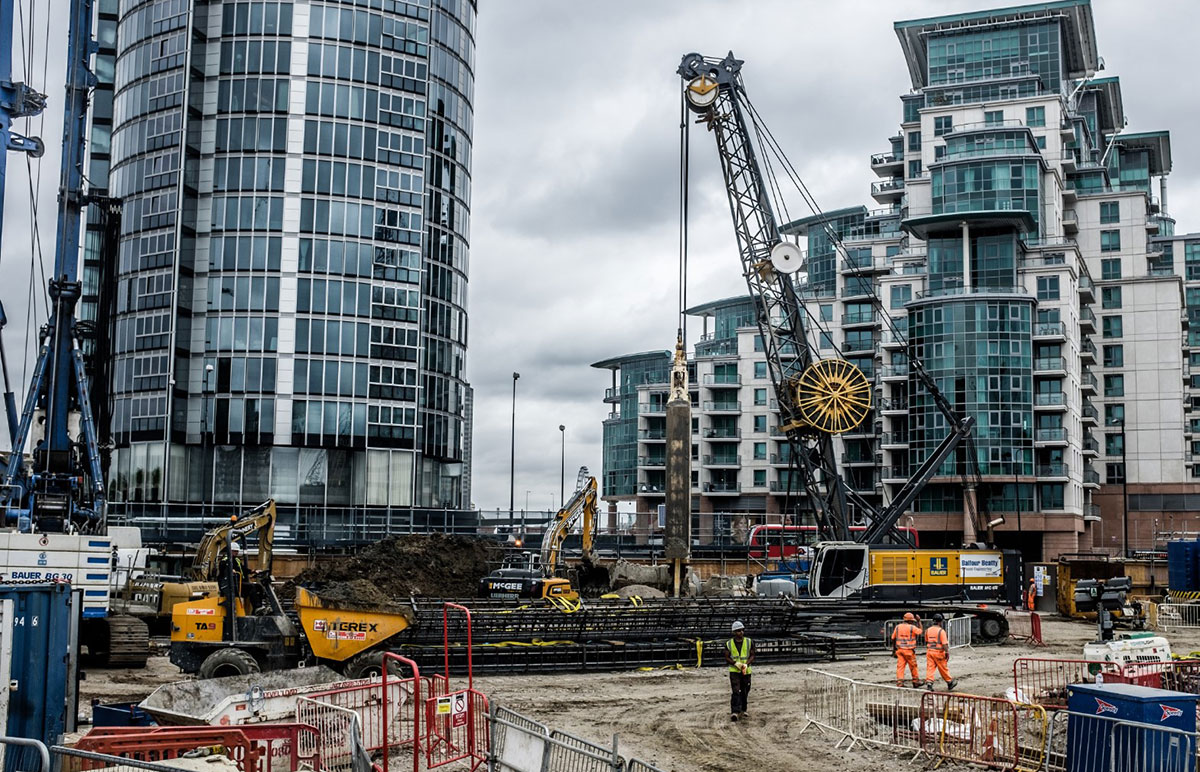Geotheta for Dummies
Geotheta for Dummies
Blog Article
The Ultimate Guide To Geotheta
Table of ContentsThe Of GeothetaSome Known Incorrect Statements About Geotheta What Does Geotheta Do?Rumored Buzz on GeothetaMore About Geotheta

They conduct site investigations, accumulate samples, execute lab tests, and examine data to evaluate the suitability of the ground for building jobs - Geo Tech Engineer. Based upon their searchings for, geotechnical engineers supply referrals for foundation style, incline security, retaining structures, and reduction of geotechnical dangers. They team up with various other specialists, such as designers, structural engineers, and construction teams, to guarantee that geotechnical factors to consider are incorporated right into the general job style and application
By analyzing the actions and properties of soil and rock, they can determine prospective geotechnical risks such as landslides, soil negotiation, or incline instability. Their know-how assists stop failings or mishaps that could endanger lives and building. Right here are some comprehensive tasks and duties of a geotechnical engineer: Website Examination: Geotechnical designers conduct site examinations to collect information on subsurface conditions.
They interpret the data to comprehend the homes and behavior of the soil and rock, including their toughness, leaks in the structure, compaction qualities, and groundwater conditions. Geotechnical Analysis and Design: Geotechnical designers evaluate the data accumulated during website examinations to analyze the stability and viability of the website for building and construction jobs. They execute geotechnical computations and modeling to examine factors such as bearing capacity, negotiation, slope security, side earth pressures, and groundwater circulation.
Getting My Geotheta To Work
Foundation Design: Geotechnical engineers play an important role in making foundations that can securely sustain the intended framework. They evaluate the dirt problems and load requirements to figure out the appropriate foundation kind, such as shallow structures (e.g., footings), deep structures (e.g (https://www.provenexpert.com/geotheta/)., piles), or specialized techniques like soil improvement. They take into consideration factors such as negotiation limits, bearing capacity, and soil-structure interaction to establish optimum structure designs
They examine construction plans, screen website tasks, and carry out field evaluations to confirm that the style recommendations are adhered to. If unforeseen geotechnical issues develop, they assess the circumstance and provide suggestions for remediation or adjustments to the design. Danger Evaluation and Mitigation: Geotechnical engineers examine geotechnical dangers and threats connected with the job site, such as landslides, liquefaction, or dirt disintegration.

Cooperation and Communication: Geotechnical designers work very closely with other specialists associated with a project, such as designers, structural designers, and construction groups. Effective communication and partnership are important to incorporate geotechnical considerations right into the total project layout and construction procedure. Geotechnical engineers give technological competence, response inquiries, and make sure that geotechnical requirements are fulfilled.
Facts About Geotheta Uncovered
Right here are some kinds of geotechnical designers: Structure Designer: Foundation engineers specialize in creating and examining structures for frameworks. They analyze the dirt conditions, lots requirements, and site characteristics to establish one of the most proper structure kind and design, such as shallow structures, deep structures, or specialized methods like pile structures.
They assess the aspects affecting incline security, such as dirt residential properties, groundwater conditions, and incline geometry, and create strategies to prevent slope failings and alleviate threats. Quake Engineer: Quake engineers specialize in analyzing and designing structures to stand up to seismic pressures. They examine the seismic risk of a site, assess soil liquefaction possibility, and create seismic style criteria to ensure the safety and strength of frameworks during earthquakes.
They carry out field testing, gather samples, and analyze the collected data to characterize the dirt residential or commercial properties, geologic formations, and groundwater problems at a website. Geotechnical Instrumentation Designer: Geotechnical instrumentation engineers concentrate on tracking and gauging the behavior of dirt, rock, and frameworks. They install and keep instrumentation systems that check aspects such as soil negotiation, groundwater levels, incline activities, and architectural displacements to examine performance and provide very early cautions of potential concerns.
4 Easy Facts About Geotheta Described
They conduct examinations such as triaxial examinations, combination examinations, straight shear tests, and permeability examinations to gather data for geotechnical evaluation and layout. Geosynthetics Engineer: Geosynthetics engineers specialize in the style and application of geosynthetic products, such as geotextiles, geogrids, and geomembranes. They utilize these materials to improve soil security, enhance inclines, provide water drainage remedies, and control erosion.
They often tend to be investigative people, which suggests they're intellectual, reflective, and curious. They are interested, methodical, sensible, analytical, and rational. Several of them are also social, meaning they're kind, generous, cooperative, client, caring, useful, compassionate, skillful, and pleasant. Does this seem like you? Take our free job test to discover out if geotechnical engineer is one of your top profession matches.
In the workplace environment, geotechnical engineers use specialized software program tools to execute estimations, develop layouts, and examine data. They prepare records, testimonial task requirements, interact with clients and staff member, and coordinate task activities. The workplace setup offers a helpful setting for research study, analysis, and collaboration with other specialists associated with the job.
What Does Geotheta Mean?
They often go to job sites to carry out site examinations, analyze geotechnical conditions, and gather data for evaluation. These brows through entail taking a trip to various locations, occasionally in remote or tough terrains. Geotechnical engineers might execute dirt sampling, conduct tests, and screen building activities to make sure that the geotechnical aspects of the project are being carried out properly.
Geotechnical engineers likewise function in specialized geotechnical research laboratories. Geotechnical research laboratory engineers work thoroughly in these atmospheres, handling testing tools, operating tools, and recording information.
Report this page